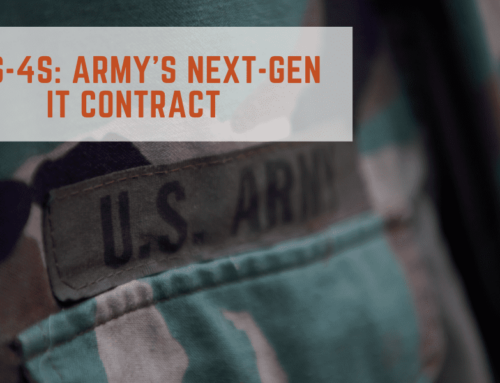As the incumbent, you are in a unique position that gives you an advantage over your competitors in winning your proposal recompetes. You should have data from the existing contract that will enable you to easily win. However, the sad truth is that, incumbent proposal teams often lose competitions they could have won.
The Tragic Flaw
For many bid teams, the information they need to win doesn’t become available, in enough time, or enough detail, to use in the recompete. There are some common reasons for this:
- Preparation for the recompete starts too late, and there isn’t time to collate the information before writing the answers.
- Data has been lost, forgotten, or is held in difficult to collate formats.
- The type of information that would really support the rebid was never gathered. For instance information on customer satisfaction, or the impact of work done on the contract in helping the customer meet their strategic goals.
- There is a lack of understanding by those who hold the data of the urgency and benefits of finding, sharing, collating and analyzing the data with the bid team.
- Staff and managers near the front line of the contract, who have useful information, are often not asked and don’t realize that what they are delivering is of real interest in the recompete. The improvements or initiatives delivered for the customer would be great evidence of innovation to the recompete team. However, the proposal team will not be able to use this information unless the operations team is able to capture, organize, and preserve it.
- Occasionally information is withheld from the bid team, because it might be seen as embarrassing for the operational team (for example poor performance, or a previous issue in delivery at some point in the contract), or the view is taken that the customer has forgotten about it, so it is irrelevant and the bid team don’t need to know.
How to Avoid THE Tragic Flaw and Win
To avoid these problems the bid team should:
- Start engaging early with the operations team and departments that hold information on the contract. ‘Early’ means at least 6 months before the RFP is due to be published. That gives time to get data, analyze and check it.
- Look at the data in different ways to understand its meaning. For example, take monthly data and put it into a timeline across the whole contract period to see the long term trend; perhaps collate two different sets of data together to see links and build a more powerful story.
- Example: A bid team found that delivery for the contract they were recompeting had consistently met the KPI’s throughout the contract’s 4-year life. So far, so boring. But looking at separate financial records, they realized that the volume of work had more than doubled during the period of the contract. So KPI’s had been consistently met, even though volume of work had doubled. This was more interesting – it told of flexibility, an ability to deliver change and increased volumes with no impact on performance. Looking at a third set of records, the team realized that costs for the contract, while they had increased, had not increased equal to the volume of work. So, not only had the contract delivered consistent performance against KPI’s while volumes doubled – but the price per unit to the customer had actually been reduced at the same time. That was a stronger story. But one that would not have been ‘discovered’ without the time and inclination to look through a range of data sources with an eye to the recompete.
- Focus on finding and collating information, with an open mind – looking at what the data tells, rather than simply looking for a specific answer (and potentially missing something more important).
- Spend time with those in the operation, explaining the benefits of getting qualitative and well as quantitative information for the recompete.
- Be willing to put in place new measures for data collection, even if you only have a few months to harvest information. Customer or end user satisfaction surveys are an example of this. Too often they haven’t been completed, or haven’t been followed up during the contract delivery stage. Even if the data collected at the ‘last minute’ is less than ideal, it is better than nothing and often can be used in the recompete.
- Look at specific aspects of the solution being developed for the new bid and seek out information that will support why that solution is best for the customer, fits their needs, and is deliverable.
- When the RFP does come out, revisit the data collected to see what can be used as evidence to support answering specific questions asked by the customer.
The difference between winning and losing is in your hands
There is a huge difference between a submission that has clear, detailed, and relevant evidence to back up each part of the solution and answers, vs.. one that has little evidence, or just vague assertions of ability and performance. And the difference in scores achieved by each can be equally large. Often it is the difference between winning and losing.
As we said at the start, as the incumbent you have a huge advantage in terms of the data available to you vs your competitors.
But it is an advantage easily wasted if you don’t take the time and effort to use it.
Note: Nigel Thacker, the author of this article, is a proposal professional residing in the United Kingdom. Nigel is arguably the leading authority in the business on recompete proposals.






Leave A Comment